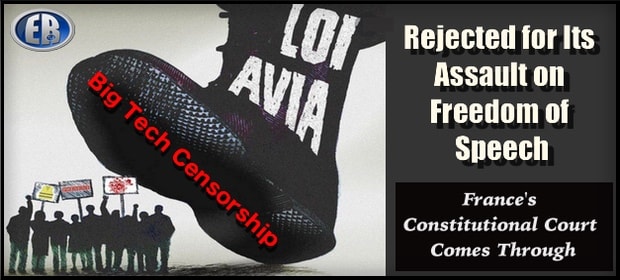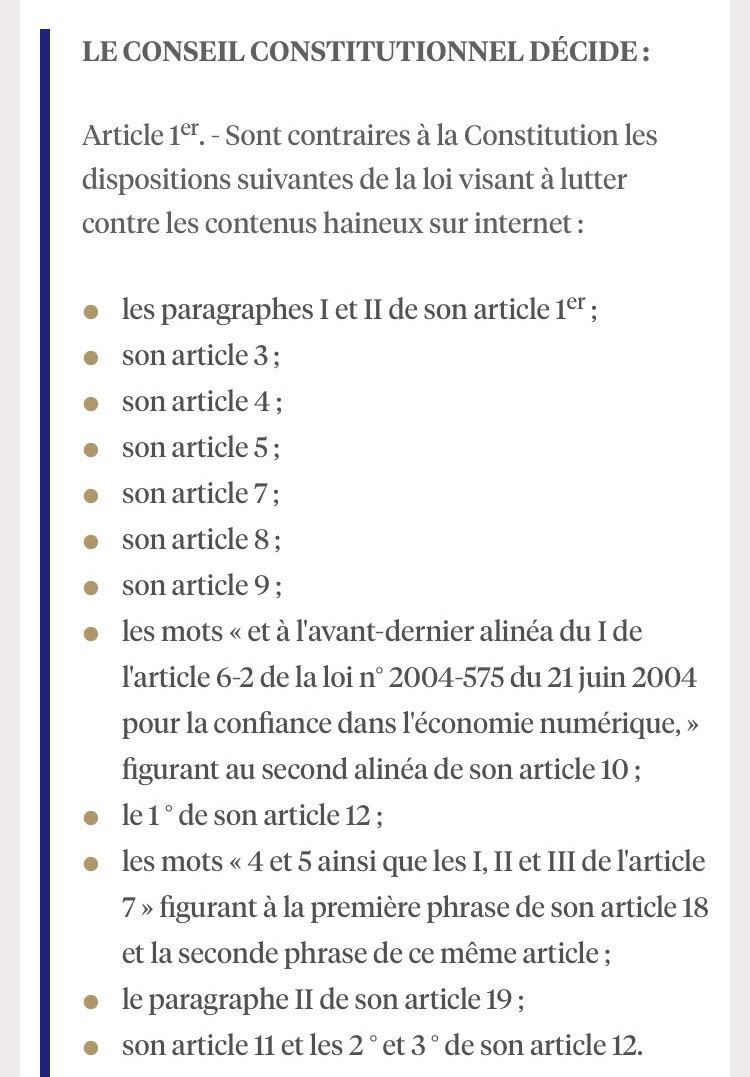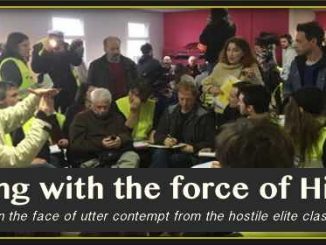
ER Editor: The ‘Avia’ Law, named after one of Macron’s MPs, lawyer Laetitia Avia (pictured below), due to take effect on July 1, 2020 is now effectively pointless and entirely defanged, for having been judged to violate the constitutional right to free expression. There are many people who are relieved about this.
As Judith Bergman explains in a May 2020 article for Gatestone:
On May 13, the French parliament adopted a law that requires online platforms such as Facebook, Google, Twitter, YouTube, Instagram and Snapchat to remove reported “hateful content” within 24 hours and “terrorist content” within one hour. Failure to do so could result in exorbitant fines of up to €1.25 million or 4% of the platform’s global revenue in cases of repeated failure to remove the content.
France’s free speech organisation, Article 19, had this to say:
ARTICLE 19 is concerned that the French proposal of a Bill on Countering Online Hatred – so called “Avia Bill” (Project de loi Avia) fails to comply with international free expression standards. We warn that the Bill entrenches private censorship of a wide range of illegal content at the expense of the courts, the 24 hour-time limit on content removals is too short and the sanctions meted out to eradicate online ‘hatred’ are disproportionate. ARTICLE 19 urges the National Assembly to reject the Bill. Instead, the French Government should explore alternative options to take a more holistic approach to concerns about the power and influence of the dominant social media platforms.
In rejecting the majority of this law, and in so doing dismissing the rest, online platforms such as Google, Youtube and Facebook cannot become a knee jerk judge and jury of what gets posted and thus ‘said’ online.
French judges can now resume their proper role as arbiters of what is permissible or not under the law.
********
The Constitutional Council censors the entire repressive part of the Avia law
In particular, the Council members rejected the obligations put on social networks to remove illegal content within 24 hours, as this was not compatible with freedom of expression.

Laetitia Avia. Photo © Raphael Lafargue-POOL/SIPA
Original article

••••
The Liberty Beacon Project is now expanding at a near exponential rate, and for this we are grateful and excited! But we must also be practical. For 7 years we have not asked for any donations, and have built this project with our own funds as we grew. We are now experiencing ever increasing growing pains due to the large number of websites and projects we represent. So we have just installed donation buttons on our websites and ask that you consider this when you visit them. Nothing is too small. We thank you for all your support and your considerations … (TLB)
••••
Comment Policy: As a privately owned web site, we reserve the right to remove comments that contain spam, advertising, vulgarity, threats of violence, racism, or personal/abusive attacks on other users. This also applies to trolling, the use of more than one alias, or just intentional mischief. Enforcement of this policy is at the discretion of this websites administrators. Repeat offenders may be blocked or permanently banned without prior warning.
••••
Disclaimer: TLB websites contain copyrighted material the use of which has not always been specifically authorized by the copyright owner. We are making such material available to our readers under the provisions of “fair use” in an effort to advance a better understanding of political, health, economic and social issues. The material on this site is distributed without profit to those who have expressed a prior interest in receiving it for research and educational purposes. If you wish to use copyrighted material for purposes other than “fair use” you must request permission from the copyright owner.
••••
Disclaimer: The information and opinions shared are for informational purposes only including, but not limited to, text, graphics, images and other material are not intended as medical advice or instruction. Nothing mentioned is intended to be a substitute for professional medical advice, diagnosis or treatment.






